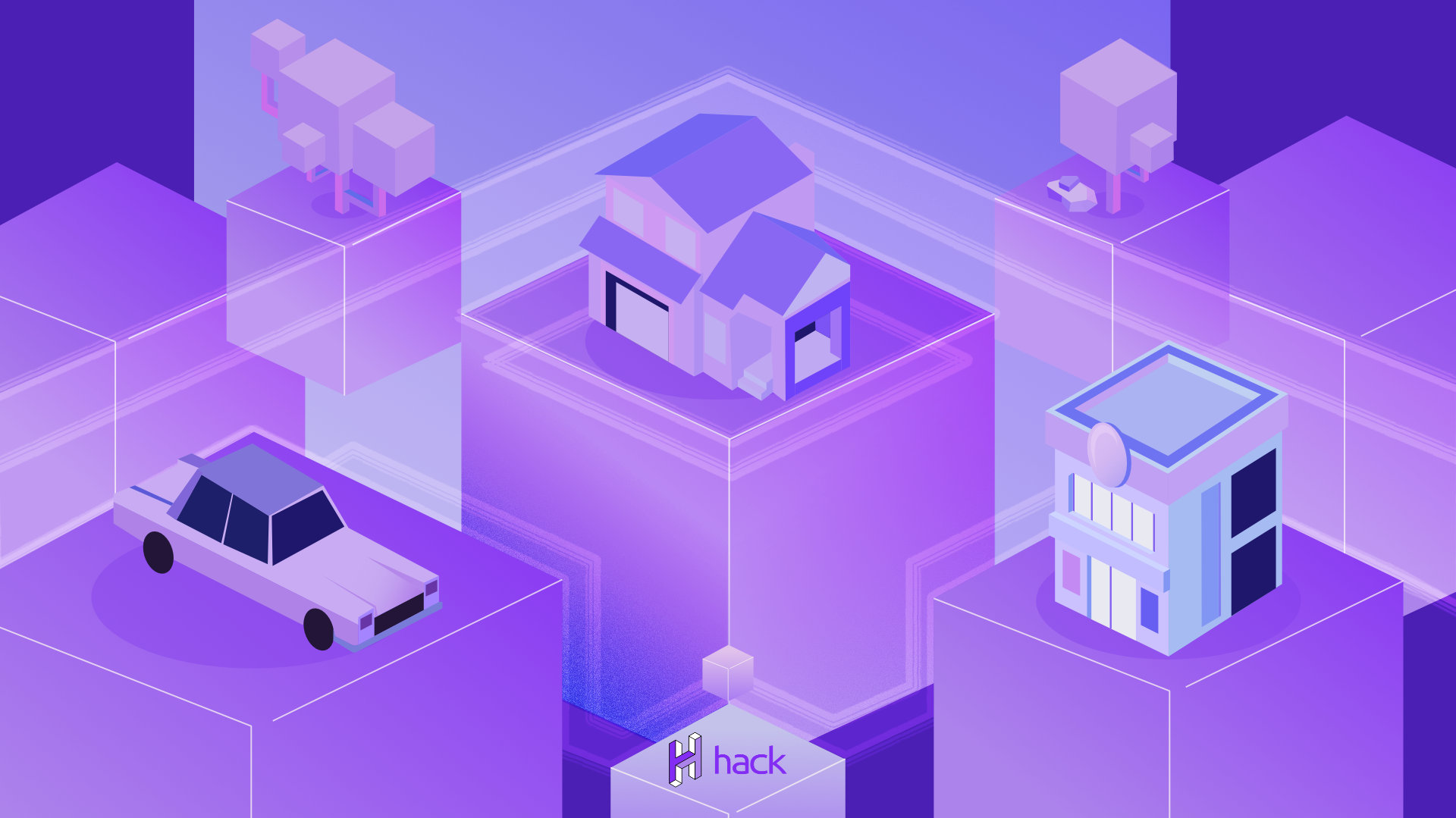In Part 1 of our interview with Vlad, we talked about Blockchain and DeFi projects, the current bull-run, and more. If you have missed it you can check it here.
In Part 2 we are going to discuss the need for crypto in the world; the need for regulations; decentralization, Eth2.0, and more just keep reading.
Why do you think the world needs crypto? Or why not?
The world definitely needs crypto! One of the reasons is the fact that it provides an alternative to the current financial and banking system. It’s very early to determine if this alternative is successful, but so far, is doing quite well. I think crypto is changing the way people think about money, and what money is, what value is, how value is created or destroyed, and who or what controls it. I think crypto and blockchain enable to create new financial products more suitable for a high-tech society. I am certain that with open blockchain infrastructure banking and financial services will be automated and will become more transparent and more trustworthy. I think in the 21st century, it’s important to look at the technology on how it can solve issues and not just stick to systems that have remained unchanged for hundreds of years.
With blockchain technology, smart contracts, automation, and artificial intelligence, the world of finance, banking, and insurance could change dramatically in the next years for the benefit of the users. These services can reach parts of the globe, which currently don’t have access to banking and financial services. Of course, a lot needs to be done on scalability and UI?UX before that. But that’s coming. For the developed world, I believe public, permissionless blockchain technology is the only viable deterretto the dystopian futures that could be created by states or corporations. Blockchain technology and crypto is leverage against these constantly increasing powers. Of course, crypto enthusiasts don’t have an army yet, so we need to rely on soft power. But soft power is becoming increasingly important in the 21st century. So when I think about blockchain and crypto – they’re not trying to destroy the existing financial and banking services, but want to push them towards greater transparency, and make them evolve in a way. So I don’t think there’s a war between the two but more of a synergy that we are going to witness in the future. Still, if things don’t go the way we want them in the traditional finance and banking space, we can always fall-back to public blockchain platforms.
Do you think that crypto projects need stricter regulations? In the crypto space, we always talk about decentralization, but still, someone has to be responsible?
This is a very complex and important issue. I think the transparency aspect is more important here because crypto is more easily trackable and identifiable. There are, of course, practices that enable people to completely or at least, to a large extent, conceal their identities. I think the crypto space is kind of self-regulating. But since the crypto market cap is growing to trillionsof dollars (that’s not a small amount, but in comparison to the rest of the financial and banking space it’s not large) regulators will become more interested in it. So regulations are coming. For the larger part of humanity, regulations will actually open the doors to crypto, the minority of cyberpunks, maximalists, idealists and people who are looking into crypto in a more philosophical way, will also get what they want in terms of decentralization and the whole spirit of the technology, but I think there will be a compromise made on both sides – between those who don’t want regulation and the ones that want full regulation. I believe we will meet somewhere in the middle. This will be a positive development, depending on what exactly these regulations look like. Some of the proposed regulations that I’ve seen sound impossible to implement in practice. It’s very interesting to see how far that will go. In the EU the regulation around crypto and DeFi will be formed by legislation but also some interesting European Court of Justice rulings. So regulation is inevitable, like it or not. It might change the user experience, but at the same time, it might bring a lot more users to the space.
Do you believe in true “decentralization” and to what extent do you think it can be achieved?
I think everyone’s focusing on decentralization, and this is not the point here. I think trustlessness is more of a key point. The ability to be sure that certain applications cannot be stopped or affected by anyone that is out there, and are functioning as they are supposed to be, without anyone being able to stop them or modify them. Decentralization is actually not a natural state in our physical world when it comes to how systems work. A direct example here is the competitive advantages in economics, and production at scale – it’s much more efficient to create a factory that creates a specific product. So in terms of efficiency, it’s much more adequate to be centralized and many systems are pushing in this direction. So what we are actually trying to do here is fighting against natural laws in order to achieve robustness. But I don’t think that pure decentralization can be achieved. We can see that even in Bitcoin, which is one of the most decentralized blockchain networks. There are four pools that produce more than 75% of the entire network. They are composed of individual miners, yes, but there is still centralization. The economic incentives keeping the network running are more important than decentralization. I like the decentralization aspect because of the existence of copies of the blockchain, that’s what makes it valuable. But apart from that, I don’t think decentralization is what keeps it running. I think the strong economic (game-theoretical) incentives that Bitcoin established are what’s protecting the network. I am, however, a fan of Proof of Work and still believe it is the better Sybil attack mechanism in comparison to Proof of Stake. PoW connects the blockchain with the real-world via the conversion of energy into crypto, while PoS relies only on questionable economic incentives. I don’t like losing that real-world connection, but that’s where most of the altcoin projects are heading. Let’s see how that will go.
What do you think about Eth2.0 and what do you think makes it better than other platforms on the market?
That is also a controversial topic. Everyone was looking forward to ETH2.0. It looks like it might be one of the best well-protected solutions because of the whole amount of Ether that is currently being staked in order to be mined. But, let’s see how it goes. It’s going to be the first major implementation – the proof of stake. I think it will be a process before we really make it robust and move away from the proof of work chain. What makes it good is just the fact that Ethereum in general is a brand that is one of the best-known names in the technology world and is just second to Bitcoin. It has a huge amount of dev resources behind and it has institutional support and the Ethereum ecosystem is unlike any other solution out there. From a technological point of view, I really can’t say I haven’t looked into the details. And even if I have, I’m just a marketing guy, and I heavily rely on the opinions of other people. But keeping in mind how many years it has been working, and how many devs are actually working on it. I believe that it might be a success. I’m still not convinced that proof of stake is really the best technology out there and I also don’t think that Ethereum is currently the best technology out there. But it’s still the most popular so it enjoys the largest network effect. That is a guess again. The best technology does not always win.
It has recently been talked about the long-awaited Tapoot and Schnorr signatures in the Bitcoin space, do you think this is a step forward in favor of privacy and scalability for Bitcoin? What do you think about Bitcoin upgrades?
I think those upgrades are very important and I am waiting for them impatiently, to be honest. They will make the Bitcoin network more efficient without increasing the block size, and also make it more private. And this privacy is actually the part that I’m most interested in because I think Bitcoin requires more privacy. On the other hand, we have witnessed that some privacy coins were delisted by exchanges. So it’s interesting to see how that will work. What I think will happen is that some people will use the privacy-preserving features of the Bitcoin network, but exchanges and other big economic actors won’t. So in effect, the Bitcoin network will functionally be divided into a formal public and private-public network. . This will be the best way forward because if all transactions are private, large economic agents participating in the Bitcoin ecosystem will have a harder time serving users. But definitely, there should be some straightforward solution for privacy without resorting to mixer services. So all upgrades to the Bitcoin network are welcome. And of course, they need to be implemented very carefully, because we don’t want to lose any trust in the network. It’s very important to keep the Bitcoin network robust and well-secured.
What advice would you give to people who are just entering the Blockchain space, whether as users or developers?
Well, as users, I always give the advice to do some research and get some crypto. Even small amounts will push you further down the rabbit hole. You’ll start looking at charts more frequently, then you’ll be reading the news more frequently, at your position 24 times a day. Are you in profit? Are you at a loss? What are the reasons behind that and so on. That’s how you get hooked.
And for developers? Well, what can I say, it would be an interesting time for them. Because you know, decentralized systems are very different from centralized ones. The processes of developing, upgrading, and securing them are different. But definitely, I think this technology will be fundamental in the future. And I think blockchain will be in some form behind most of the banking and financial transactions after 5 to 10 years, unless something more efficient, or something more secure, manages to attract a large developer resource and liquidity. But again, as I said, it’s not always the best technology that wins, but the technology that most people are using. So join us in the blockchain space. It’s one of the most exciting spaces in 2021. It’s super-fast-paced. The scale and speed of innovation is just mind-boggling. And yeah, it’s never ever dull, so join the fun and get future-proofed.
![Cover Image for Let’s talk blockchain – Vladislav Dramaliev [Part 2]](/_next/image?url=https%3A%2F%2Fwp.web.hack.bg%2Fwp-content%2Fuploads%2F2021%2F02%2F1.png&w=3840&q=75)


